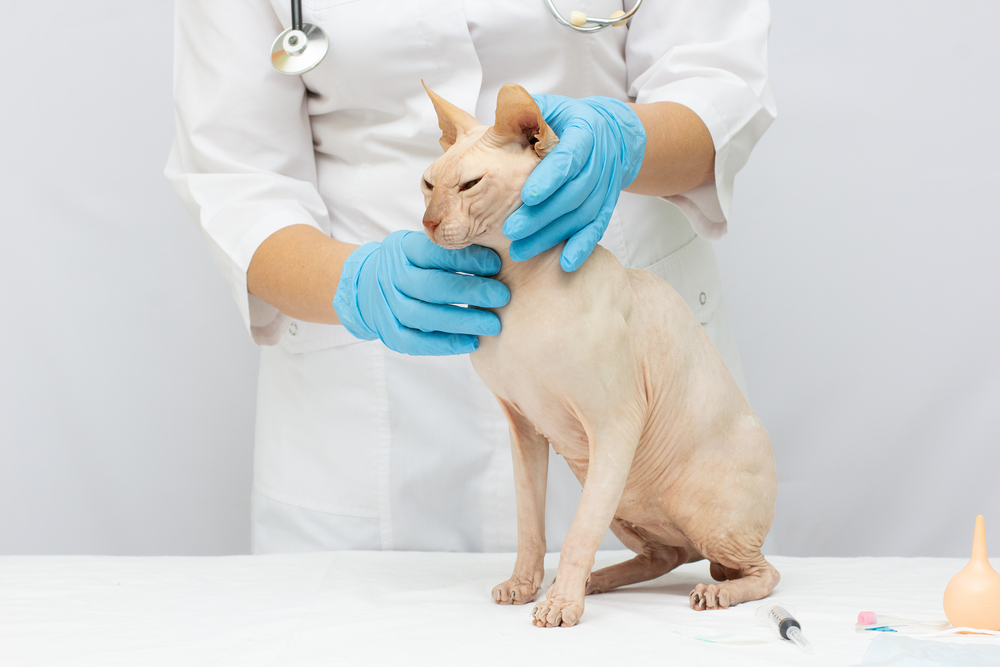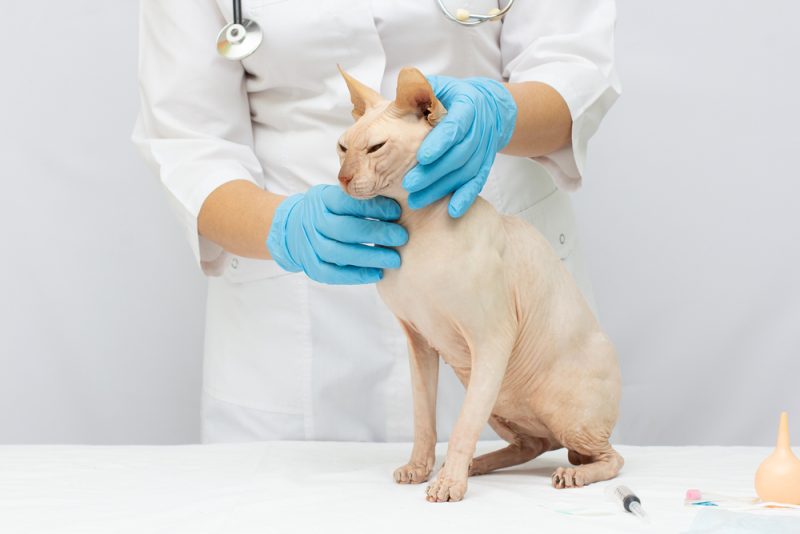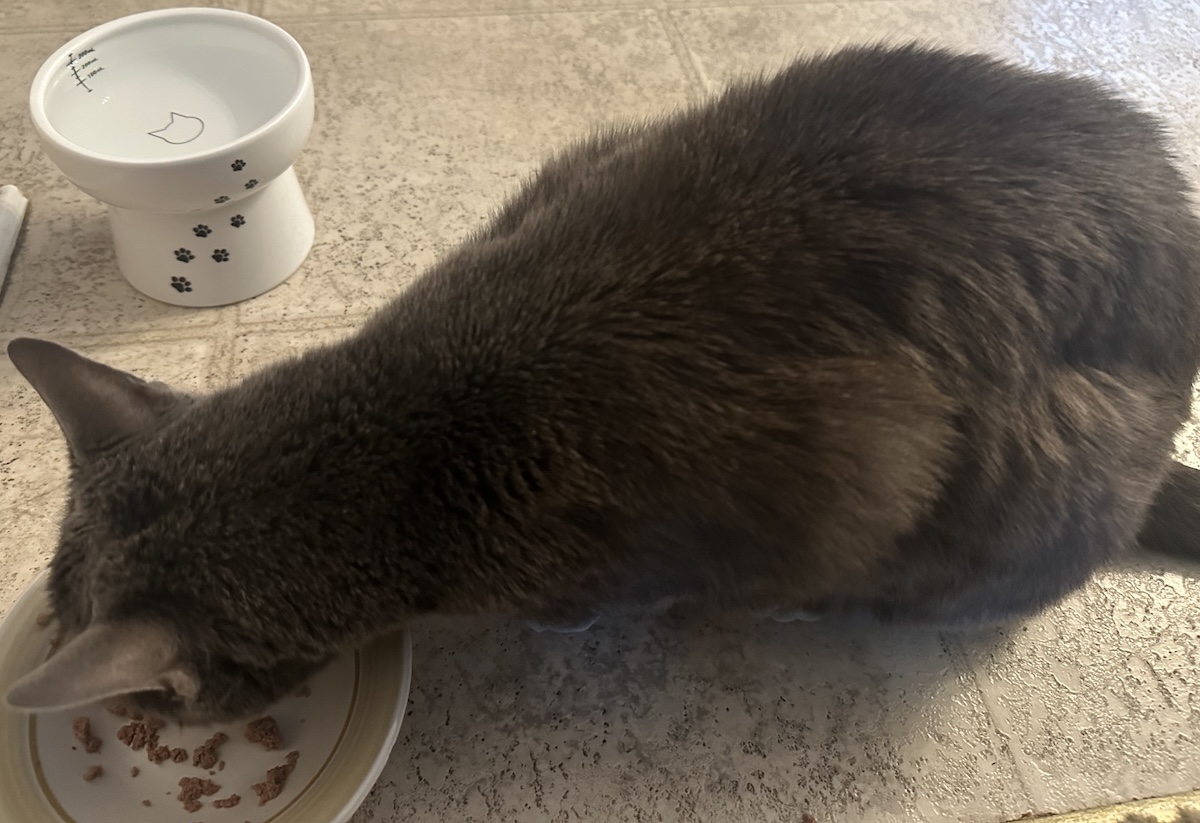Sphynx cats first came about in the 1960s as a result of a genetic mutation. Ever since, cat owners have been in love with the unique look and personable nature of the hairless breed.
Like other purebred cats, Sphynx cats may develop genetic health conditions. There is some controversy1 around their breeding as hair provides protection, temperature regulation and communication. They’re also prone to the same conditions that affect cats as a species. Despite this, they are known to be energetic and intelligent companions. Here are 6 common issues for Sphynx cats.
The 6 Common Sphynx Cat Health Issues
1. Skin Problems
Sphynx cats are hairless, so they lack the protection that fur provides. They need frequent baths to keep their skin free from excess oils and dirt, which can lead to skin problems. Urticaria pigmentosa is another Sphynx skin problem, it results in red pigmented spots on the skin. Sphynx cats may also be prone to sunburn from lying in direct sunlight since they don’t have a thick layer of fur to protect them.
- Lesions
- Red spots
- Greasy, itchy seborrhea patches
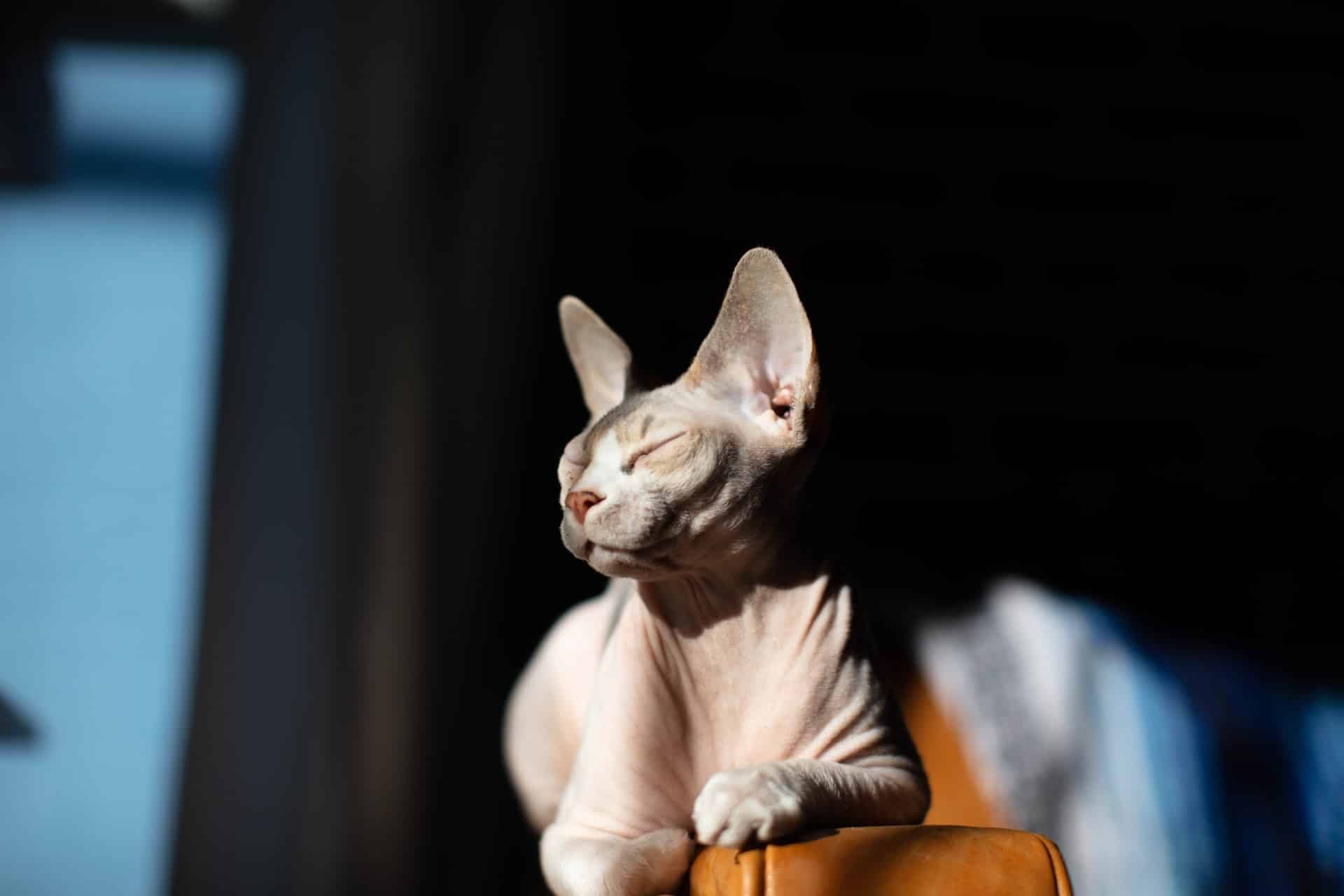
2. Poor Temperature Regulation
Sphynx cats aren’t able to regulate their body temperature effectively, leading them to get chilly easily in cold weather. It’s important that they have sweaters, heated cat beds, and extra blankets to stay warm. Likewise, their lack of fur makes them unable to cool their bodies appropriately in hot weather, and they should have access to cool areas to stay comfortable. They shouldn’t be allowed outside for long periods in either hot or cold weather.
- Avoids walking on cold surfaces
- Stays close to human companions for warmth
- Shivering
- Lethargy
- Cold to the touch
3. Ear Infections
As a result of hairlessness, Sphynx cats have no hair in their ears to protect them from excessive wax buildup and ear infections. It’s important to clean your cat’s ears regularly with pet-safe wet wipes or a cat-safe ear cleansing solution. Avoid sticking anything directly in your cat’s ears—stick to wiping the area outside the canal.
- Swollen or red ear canal
- Head tilting
- Yellow discharge
- Difficulty hearing
- Smelly ears
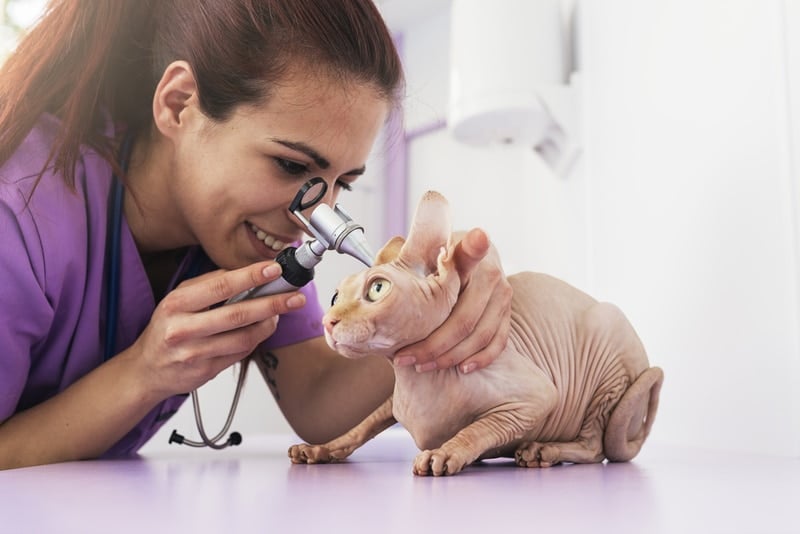
4. Hypertrophic Cardiomyopathy
Hypertrophic cardiomyopathy is a common disease in Sphynx cats that causes the heart muscle to become abnormally thick. Because of this, the cat’s heart, over time, begins to fail. Your vet should check for signs of heart problems at each exam since hypertrophic cardiomyopathy can develop over time.
- Labored breathing
- Hind leg paralysis
- Fluid buildup in the lungs
- Thromboembolism
- Acute pain in the hind legs
5. Hereditary Myopathy
Hereditary myopathy is a generalized muscle weakness caused by a defect in the transmission of nerve signals to the muscles. Eventually, the disease progresses to the point that cats can’t walk or exercise because of excessive muscle weakness. Usually, the early signs of muscle weakness can show from three to 24 weeks.
- Muscle trembling
- Abnormal gait
- Head bobbing
- Collapse
- Exhaustion
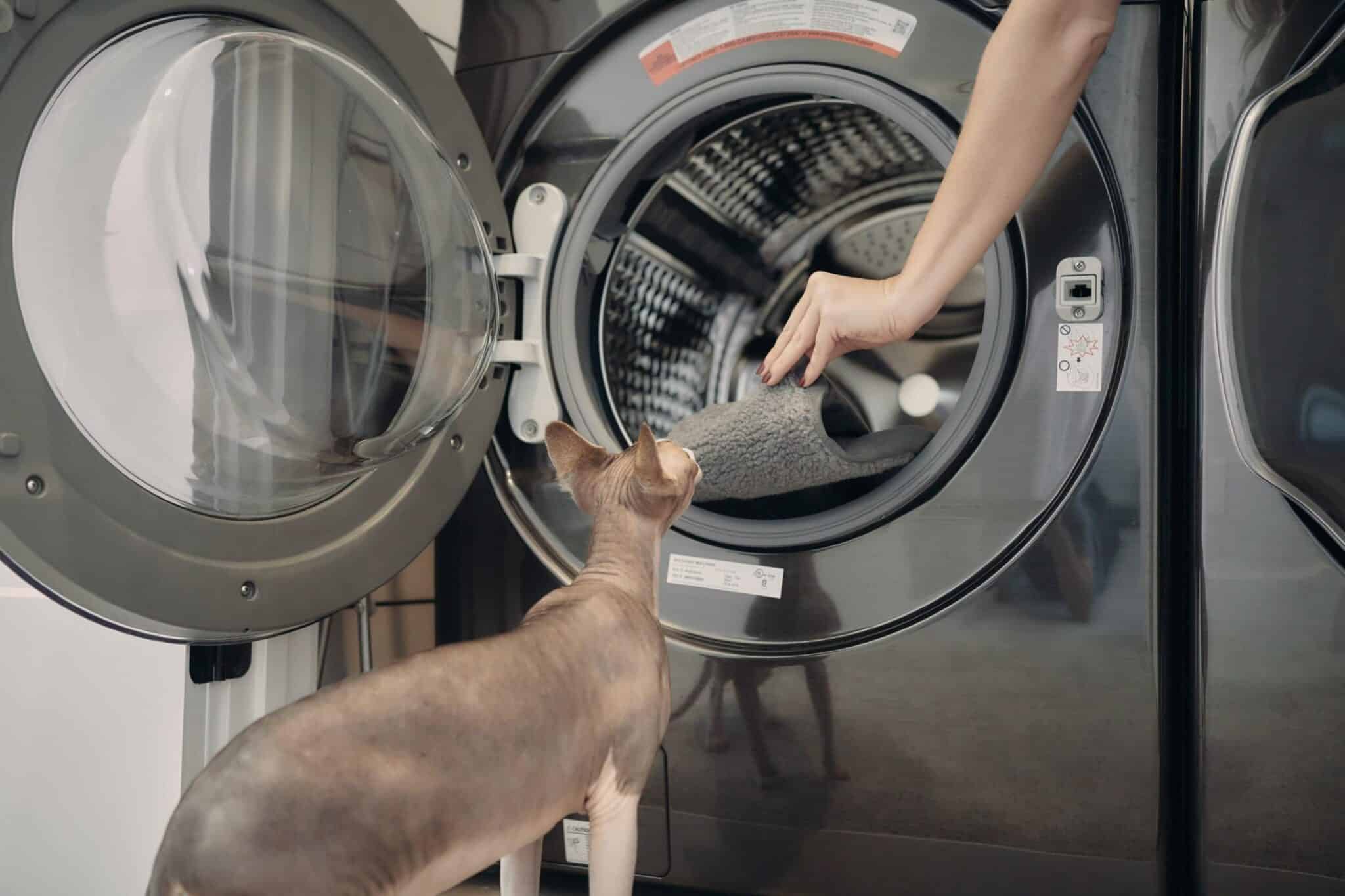
6. Periodontal Disease
Sphynx cats are prone to dental issues, including periodontal disease. Regular dental cleanings can remove plaque and control infections that cause bad breath, drooling, and red, swollen, or bleeding gums. Periodontal disease begins as gingivitis, which can be controlled if it’s caught early enough.
- Red, swollen, or bleeding gums
- Bad breath
- Yellowing teeth
- Drooling
- Difficulty eating
What Health Conditions Are Common in Cats?
Along with genetic health conditions, Sphynx cats may be susceptible to health conditions that affect all cats as a species. Feline lower urinary tract diseases (FLUTD) and other urinary tract problems, fleas, ticks, and other parasites, and eye problems like conjunctivitis, corneal ulcers, cataracts, and glaucoma are all common in cats. Fortunately, many of these health conditions can be treated or prevented with regular veterinary care.
Conclusion
Sphynx cats are sweet and lovable companions. Like all cat breeds, they’re prone to some genetic conditions and general health issues, but with regular veterinary care, you can help your Sphynx cat live a long and full life.
Featured Image Credit: Irina Vasilevskaia, Shutterstock

